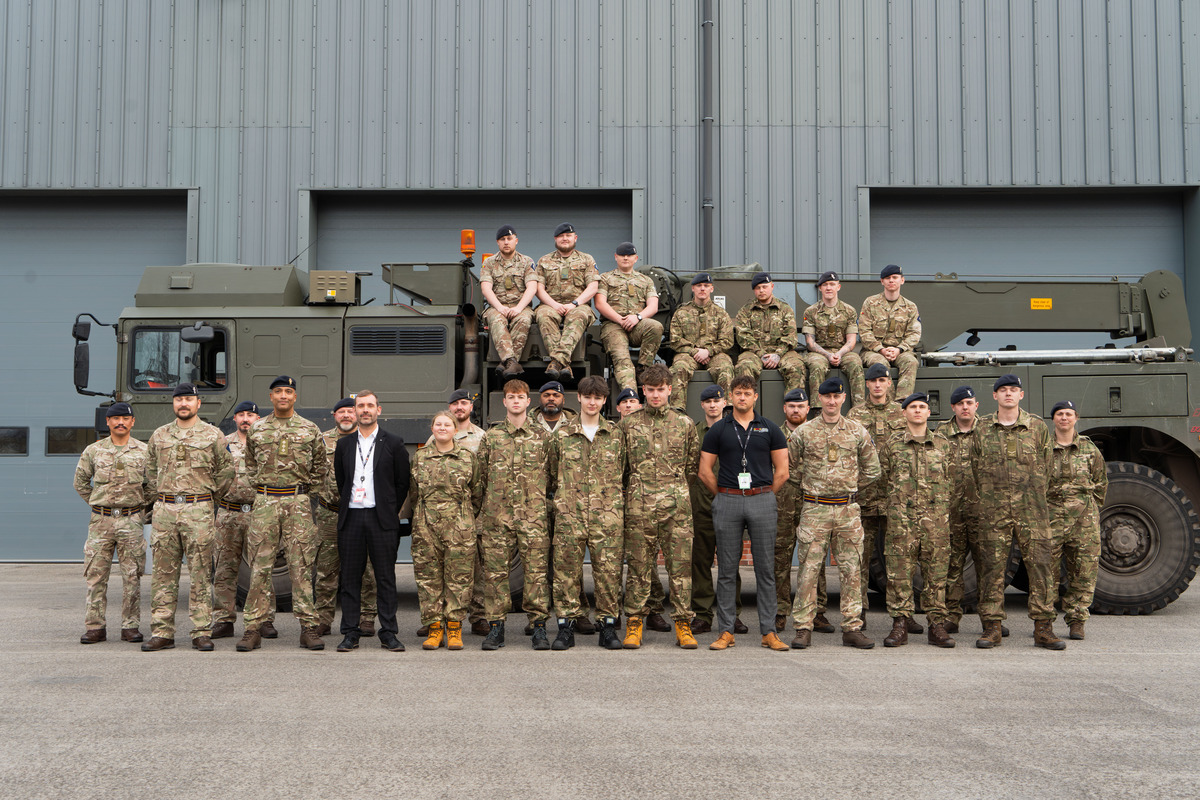Diary of an Apprentice: 6 things I’ve learned six months into my apprenticeship journey

In the second entry of her ‘Diary of an Apprentice’ series, Sakina Khan outlines some of the most significant things that she’s learned during the first six months of studying her Level 7 apprenticeship, including those that are helping her to develop and flourish in her role as Innovation Project Manager at NCFE.
Back in November 2023, I first embarked on this incredible journey of studying a Level 7 apprenticeship in Senior Leadership at The University of Manchester: Alliance Manchester Business School. So far, it’s been a whirlwind of learning, challenges and personal growth – one that I wouldn’t change for the world.
Today, six months into my studies, I wanted to reflect on six of the key things I’ve learned so far, which are helping to expand my knowledge and refine my leadership skills – outlining the ways they have resonated with me both professionally, and often, personally too.
1. Embracing intersectionality is key to building more inclusive environments
In my very first assignment of my apprenticeship, I looked at intersectionality – exploring how different social identities such as race, gender, and disability can overlap and create unique experiences of oppression. This concept struck a chord with me, as I’ve personally faced this discrimination in my career.
I’m now aiming to apply this knowledge and implement strategies to embrace intersectionality at NCFE. As a member of the Equality, Diversity, and Inclusion Committee, my role is to work with the committee to develop inclusive practices. Through my committee involvement, I seek to contribute to meaningful change within, creating a sustainable and equitable future – and by recognising the challenges faced by individuals with intersecting identities, we can foster a more inclusive environment.
2. Focusing on group dynamics provides a lesson on self-awareness
During a workshop which focused on group dynamics, I participated in an exercise where I shared three personal insights and three negative traits that I associated with someone I disliked. This activity revealed a fascinating revelation: the negative qualities I attributed to others were actually projections of my own insecurities. It was a powerful lesson in self-awareness, reminding me to be mindful of my biases and take ownership of my emotions and perceptions.
I found this exercise invaluable in understanding the importance of recognising and managing my own issues before projecting them onto others. In fact, this experience was so impactful that I’m excited to facilitate a similar CPD session for my colleagues at work. It will be a fantastic opportunity to explore group dynamics together, learn from each other’s unique insights, and discover new approaches to managing team interactions.
3. Real-world application of frameworks helps to bring them to life
Through my studies, I recently learned all about the VUCA (volatility, uncertainty, complexity and ambiguity) and Five Force models. These frameworks are fantastic for effectively assessing the internal and external forces that can impact a business. The timing of learning about these models has been ideal, as I’m currently supporting the development of NCFE’s strategy post-2024 and this has been a great opportunity to put my learning into practice, helping to inform our approach through assessing and constructively challenging the ideas of others.
With a comprehensive understanding of both the internal and external factors, we will be better equipped to make informed decisions and navigate the ever-changing business and education landscape. Being able to put my learnings into practice in my day job is incredibly beneficial to ensuring that I fully understand these models, giving me plenty of opportunities to reflect on my application of these within my apprenticeship modules.
4. Reflexive practice can help us to unlock self-discovery
Engaging in reflexive writing has become a true game-changer for me. It’s a space where I can delve into my thoughts, emotions, and experiences without fear of judgment. This introspective practice allows me to explore my actions, decisions, and beliefs on a deeper level, leading to valuable insights into my behaviours and motivations.
Through reflexive writing, I’ve unearthed patterns and assumptions I never noticed before. This newfound awareness empowers me to question and reshape them as needed. In fact, I’m so passionate about the benefits of this practice that I’m planning to share it within NCFE as part of our Health and Wellbeing initiative; embedding this transformative practice across our teams, fostering a culture of self-reflection and personal growth. Imagine the positive impact we can create by harnessing the power of reflexive writing together!
5. Championing different learning styles is crucial for widening our pool of leaders
My first group assignment explored how leaders with hidden disabilities can become the leaders of tomorrow and provided me with an incredibly enriching experience. I had the privilege of collaborating with remarkable individuals who greatly influenced me through their exceptional ability to apply theoretical concepts in practical ways, which deepened my understanding of Edgar Schein’s Model of Organisational Culture.
As someone with dyslexia, I often face challenges in comprehending and retaining new information. It requires additional time and alternative approaches for me to truly grasp knowledge. I have found that hands-on learning is particularly effective for me, as it bridges the gap between theory and practice. This experience continues to motivate me to explore different learning methods and discover new ways to absorb information efficiently.
6. There are several elements that make for a ‘good’ (and bad!) strategy
After studying Richard Rumelt’s insights on good and bad strategy in my module on strategic management in the global context, I’ve learned even more valuable lessons that I can apply in my practice. A good strategy involves identifying and focusing on a clear and unique competitive advantage that sets an organisation apart from others. It requires any business to make tough choices and prioritise resources to effectively allocate them towards achieving desired goals. Additionally, good strategy involves a deep understanding of the external environment, customers, and competitors, allowing for the development of innovative approaches and adaptation to changes.
On the other hand, bad strategy is characterised by vague or generic goals, a lack of clear direction, and a failure to address the fundamental challenges and obstacles we face. It often relies on superficial or unrealistic solutions without considering the underlying issues. By applying the principles of good strategy, such as focusing on our unique advantage, making tough choices, and understanding our environment, we can shape a clear and effective path towards success.
Looking ahead to the next six months
Six months in, this apprenticeship continues to be a whirlwind of discovery. The challenges push me to grow, the knowledge empowers me to make a difference, and the supportive community keeps me motivated.
I’m excited to see what the next six months hold, and as always, I’d love to hear from you! Feel free to reach out and share your own experiences or suggest topics for future entries – after all, we’re all on this journey of learning and growth together!
By Sakina Khan, Innovation Project Manager at NCFE











Responses